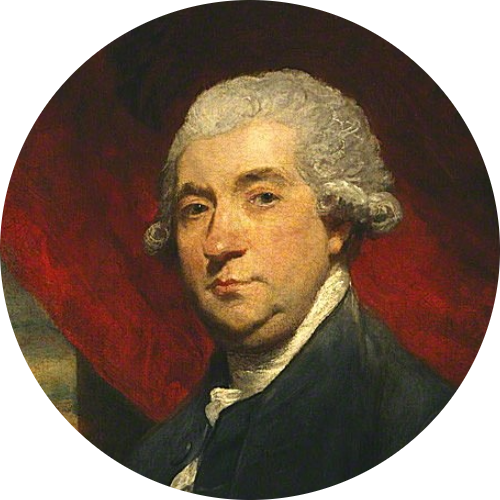Born in Dublin, son of Richard Burke (d. 1761) and Mary Nagle (abt. 1702-1770). Married (1757) to Jane Mary Nugent (1734-1812). Father of the barrister and politician Richard Burke (1758-1794).
Edmund Burke was a prolific politician, author and philosopher, by some considered the founder of modern non-religious political conservatism.
He graduated from Trinity College, Dublin in 1748 and in 1750 started studying law at the Middle Temple in London, which, however, he soon gave up. In 1756 was published his A Vindication of Natural Society: A View of the Miseries and Evils Arising to Mankind and in 1757 his philosophically influential treatise A Philosophical Enquiry into the Origin of Our Ideas of the Sublime and Beautiful. In 1758 he began publishing, with Robert Dodsley, The Annual Register, an annual political commentary which is still being published to this day.
In 1765 Burke became secretary to the then Prime Minister of England, the Marquess of Rockingham. In 1766 he was elected MP for the borough of Wendover.
In the 1780s he twice served as Paymaster of the Forces, and from 1783 to 1785 he was even Rector of the University of Glasgow.
Forthcoming.
Burke was a prolific writer who authored numerous essays on philosophical, cultural and political matters, most of which are available today.
There has been written a number of biographies of Edmund Burke, including James Prior's Memoir of the Life and Character of the Right Honourable Edmund Burke (first published in 1824 but available in four subsequent and revised editions), and the one that is probably the best researched and most detailed, F. P. Lock's two-volume biography entitled just Edmund Burke (vol. 1 publ. 1999, vol. 2 publ. 2006).
